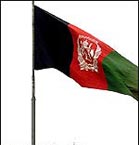Afghanistan's south between reconstruction and insurgency
 Tarin Kowt, Afghanistan - Next to the governor's palace in Tarin Kowt, hawkers spread their wares at Uruzgan province's largest bazaar.
Tarin Kowt, Afghanistan - Next to the governor's palace in Tarin Kowt, hawkers spread their wares at Uruzgan province's largest bazaar.
While merchants sell food and clothing or offer services they are drinking tea and smoke in their small shops. No women, not even a single burqa, are in sight.
In Uruzgan, a conservative region even for southern Afghanistan's standards, locals are open about their sympathies for Taliban militants.
"Inshallah, the Taliban will win," a 30-year-old fabric trader said, invoking God's will. That there will be no democracy or schools for girls, does not worry him unduly.
At first sight, such remarks evoke a dreary state of affairs, but the situation is far from one-dimensional.
In Kandahar and Helmand, Uruzgan's neighbouring provinces, the situation remains critical, but here progress is creeping ahead and the Taliban's influence seems to be diminishing.
Aid workers describe the region, the majority of its estimated 280,000 to 350,000-strong population made up of Pushtun tribes, as a "backwards province in a backwards country." Literacy rates, for example, are only around 20 per cent.
The number of girls attending school increased tenfold to 4,300 since 2002, but is still low compared to 54,000 boys.
The Taliban emerged from Pushtun tribes, which remain the militants' main recruitment base.
The International Security Assistance Force (ISAF) in Uruzgan is led by the Netherlands. While at first the butt of US soldiers' jokes, their work now gets grudging respect and praise from Washington for implementing their counter-insurgency strategy.
Marten de Boer, Dutch development attache in Kabul, said the success was due to the comprehensive approach of giving equal attention to development, governance and security.
Aid workers in Tarin Kowt also praise the approach. The Dutch government has been cooperating for the past year with GTZ International Services, the commercial arm of a state-run German aid organization.
The Dutch-financed projects on agricultural development, improving province's abysmal administration and non-existent infrastructure is to show the local population that the Western-backed elected government in Kabul can provide a better life than the Taliban ever could.
While the efforts are appreciated among the local population, a major underlying problems remains. Under Taliban rule, security was much better, said a 25-year-old merchant, who did not want to give his name for fear of being linked to the Westerners.
The line of argument that rebuilding does not count as long as people have to fear for their families' safety, can be heard very often on the bazaar.
Not the Taliban's attacks but the central government and the foreign troops' failure to establish security are made responsible for the tense situation.
The Taliban's draconic punishments - thieves' hands were hacked off - almost put an end to crime in the country. Back then, a craftsman at the bazaar said, it was no problem crossing Afghanistan carrying large sums of money.
"Today I would not dare walking a single step on the street if I was carrying 100 dollars," he said.
It is a Western misconception that all Afghans felt suppressed by Taliban rule. A Uruzgan Pushtun - the home of Taliban leader Mullah Omar - very rarely had to be forced to pray five times a day, let his beard grow or hide his wife underneath a burqa.
In Tarin Kowt, the average trader has no trouble with the insurgents - as long as he does not co-operate with foreigners or the government.
ISAF's image problem, created by reports of civilian victims and rough house searches for militants, weighs heavily.
"ISAF shoots without asking," one mechanic said. Another man added: "The Taliban treated us with more respect than ISAF."
The foreigners have lost the local people's trust, he said.
Dutch ISAF commander Tom Middendorp stressed that his troops respect cultural sensibilities and accused the Taliban of abusing civilians as human shields.
After 30 years of war, many Afghans are reluctant to choose sides, said Joep Wijnands, the Dutch civilian representative in the province. While he believes support is growing, he warns against impatience.
But time is running out for the Dutch. Their military command in the province expires in 2010, with no successor in sight, but development assistance is to continue.
In the village Gogarak, tribal elder Haji Wali Jan knows of the advantages of aid. Surrounded by mountains, desert and freshly planted fields, 20 Afghans work on a dam that is to make life easier for the villages in the area.
The 55-year-old, who stressed that no opium poppy is planted in his village, said the dam will quadruple farming yields. The villages had asked the Dutch-GTZ venture to build the dam.
The black-bearded father of four has a different view of reality than the Tarin Kowt merchants. "The Taliban just doing destruction, not reconstruction," he said.
He believes the foreign soldiers came to help, not to occupy. No Taliban will find shelter in his village. "There will be no space for the enemy," the turbaned elder said.
However, the fact that Haji Wali Jan decided to throw his lot in with Kabul and the West does not make him a less an arch-conservative Pushtun.
No, the village women would not vote in upcoming presidential elections, he believes. "The women do not want to go, and the men don't want them to go."
Boys have to get a teacher before talking about girls' schooling, that's also clear.
Yet, Haji Wali Jan is unlikely to ask his tribe to join the insurgency against the government and the Western troops. The chances for his future - and that of his children - have improved too much for that. (dpa)